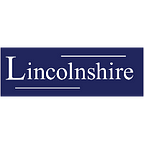Fed’s Main Street Loans Offer Broad Relief Without Clear Path | Middle Market Growth
Under the Main Street program, Lyons says one company could benefit from the loans, but the firm is continuing to evaluate other options available through the CARES Act.
“We have two people with Lincolnshire who are focused on going through all of these programs,” he says.
However, there’s reason companies backed by private equity firms might hesitate to pursue a Main Street loan. For one, unlike aid provided by PPP that is forgivable, Main Street loans come with a four-year repayment window. Payments can be deferred for one year, but interest-which is set at the Fed’s overnight rate-begins to accrue immediately.
Other inhibitors, like limits on which institutions are permitted to lend Main Street funds, could gum up the application process, causing some banks to refuse business with new clients. More than 1.6 million small businesses in the U.S. were approved for loans through the PPP. If the same number appeal for loans through the Main Street program, banks could be overwhelmed.
At the same time, due diligence requirements for loan requests could place a significant burden on portfolio companies, according to Joseph Lynyak, a partner at law firm Dorsey and Whitney.
“It’s not going to be easy to be able to obtain one of these loans,” Lynyak says. The program was constructed not so much to provide relief to companies as to boost liquidity in markets as the economy resumes activity, he adds.
Shortly after the Fed announced the Main Street Lending Program, the Association for Corporate Growth submitted a letter to the central bank outlining a number of issues in the program that could prevent middle-market businesses from accessing funds.
ACG outlined 10 challenges within the program and proposed solutions for each. They include restrictions on eligible lenders, which could overwhelm banks, and the EBITDA loan sizing test, which would prevent many companies from meeting the leverage tests.
By law, the Fed has wide latitude to alter its policy without input from other federal authorities. “Are they going to back off and change it? I think they’re going to have to because [it is] going to be really hard to find companies that are going to qualify,” Lynyak says.
In the meantime, more business funding appears to be on the way through other federal programs. On Tuesday, the Senate approved $484 billion in additional aid, $310 billion of which is earmarked for the Paycheck Protection Program. The House is expected to approve the measure and President Trump has already agreed to sign the bill authorizing supplemental relief. SBA’s adherence to the affiliation rules is expected to remain unchanged.
As they watch the various aid programs roll out, PE firms say they will keep an eye on how they’re administered. “I just hope that the politics in Washington doesn’t get in the way of this relief,” Resilience’s Rosen says.
Originally published at https://middlemarketgrowth.org on April 23, 2020.
